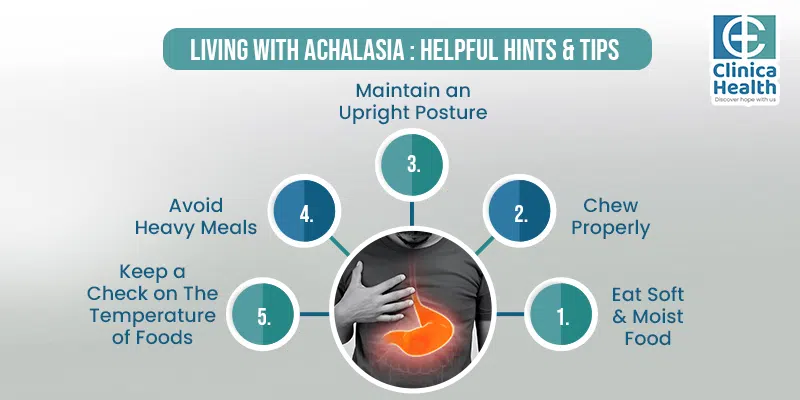-
 Call Now:
8010 552 552
7595 838 844
Call Now:
8010 552 552
7595 838 844
-
 Email Me:
[email protected]
Email Me:
[email protected]
Are you experiencing difficulty in swallowing foods and liquids? You are not alone. There are many people who face this challenge, and it’s extremely distressing when it comes to eating and drinking. One condition that causes this difficulty is achalasia cardia.
It is a condition where the muscles of the esophagus don’t work properly, making it hard for the patients to move food and liquids into the stomach.
Achalasia cardia needs to be treated; otherwise, it leads to discomfort, chest pain, regurgitation and malnutrition. If not managed properly, patients with achalasia cardia also have a higher risk of developing esophageal cancer, GERD and choking.
There are no permanent achalasia cardia treatment options; however, there are effective ways that can help you eat and drink properly while coping with the disorder.
For those living with achalasia cardia, here are some of the following tips patients can follow to eat and drink safely:
Patients must eat foods that are soft and easier to swallow. You can include options like mashed potatoes, smoothies, milkshakes and scrambled eggs. Always avoid dry and fibrous items, as they can get stuck in the esophagus.
A reputed achalasia cardia treatment doctor suggests patients eat slowly to ensure that the food is thoroughly broken down. It will significantly reduce the risk of food getting choked and even make it more digestible.
While eating, make sure to sit at a table, as it helps the food pass through the esophagus quite easily. Also, avoid lying down for at least 30 minutes soon after having meals to prevent acid reflux.
Be aware of your digestive capacity. Do not indulge in large and heavy meals in one sitting, as it will put pressure on your oesophagus. Instead, always opt for smaller and more frequent meals throughout the day. This approach minimises discomfort and also makes swallowing easier.
Avoid having extremely hot or cold drinks, as it can cause a shock to the nerve endings or the sensitive parts of the esophagus and trigger spasm pains. It is best to stick to room or lukewarm temperature.

Take a look below at the foods patients must avoid to reduce the risk of irritation and pain in the esophagus:
Though achalasia cardia has no cure; it is possible to live with the condition with proper strategies. For personalised guidance, make sure to discuss your concerns with a well-known achalasia cardia treatment doctor for specific treatment options.